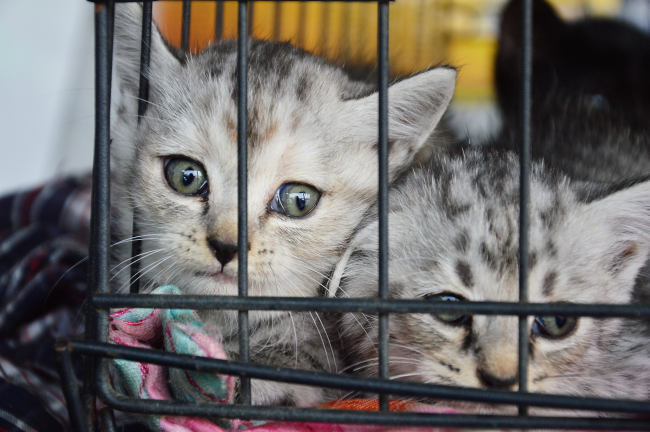
Some of the greatest tragedies in the world occur in human trafficking and animal poaching. With such horrible crimes occurring on a daily basis, it is no stretch of the imagination to accept that the same is also happening to dogs and cats across the globe. Thanks to a charity called Dogs Trust, there have recently been undercover investigations about dog smuggling in Europe. When swaths of illegally transported puppies began appearing from Eastern Europe around 2014, the charity started making inquiries about the pet travel laws of the European Union which were relaxed in 2012. The investigations led back to suspected breeders in Romania and Lithuania who would ship unvaccinated and underage puppies to prospective pet owners that purchased the dogs online.
What Kinds of Threats Might This Pose?
There are several negative impacts illegal pet trade will have:
- Pet smuggling threatens the safety of the victimized dogs and cats. These pets are separated from their mothers are a premature age, and shipped long distances in less-than ideal conditions. They are then subjected to foreign animals, diseases and places where their welfare is no one’s priority. There are no seasoned breeders or care-takers to screen the home the puppies are sent to, and nobody evaluates if the new owners seem reliable and can provide a safe environment, or whether they have good intentions toward the dog. Instead, the creatures are simply transported to whoever is willing to pay. Additionally, the neglected animals arrive in their new home, with their weak immune systems bombarded with unfamiliarity. This leaves them vulnerable to worms, parasites, kennel cough on their journey, as well as a multitude of other viruses and bacteria that they are not prepared against.
- Pet smuggling is dangerous for other domestic pets. The illegally pets who may carry a host of diseases could easily pass them to the other pets of the home. Any parasites or foreign viruses are now able to spread to whatever animal (or in some cases, whatever human) the illegally transported pet comes in contact with. Diseases like feline leukemia and FIV can be transmitted between cats through bodily fluids. Something as simple as a sneeze from an infected foreign cat could spread the disease, and shorten the life of the other cats in the house.
- Pet smuggling is dangerous for the family that takes them in. The pet-purchaser who unwittingly buys an illegally transported pet, may have to deal with any host of physical ailments the animal might have. This will include paying for vaccinations, vet-visits and medicine if the pet is ill. Were the creature to infect their other animals with a disease, the family would also have to shoulder this responsibility or even lose their pets, in the worst-case scenarios.
When Threat Becomes Crisis
With lax laws on pet transportation in the EU, there have even been animals flooding in from third world countries. Diseases that have been rendered obsolete by immunizations and no evidence of cases, have suddenly reappeared in first world countries. Since 2010, there have been outbreaks of rabies in places like Spain, France and the Netherlands; all of which have been traced to illegally imported pets. The most recent of these cases occurred in May of this year, when a dog was imported to France from Hungary, without identification, vaccination verification or proof of age. The French-Algerian dog owners then took their pet to Algeria, where it contracted rabies (as it never received the vaccine) before returning back to France. If this kind of failure to comply with legislation continues, not only with the smuggled dogs be at risk, but so with their communities and owners.

